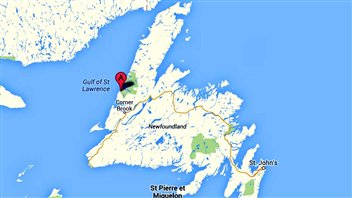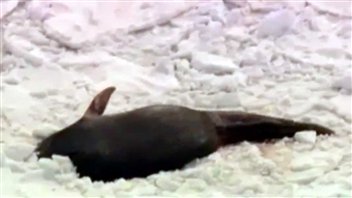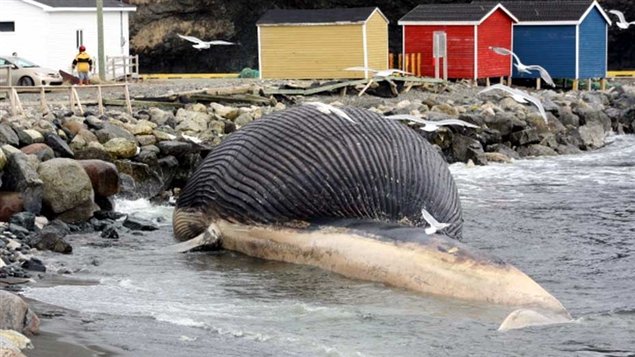Two communities on the western coast of the Atlantic province of Newfoundland have a huge, and sad, problem to deal with.

The bodies of two giant blue whales have washed up on the beaches.of Trout River, and Rocky Harbour.
“Substantial loss to marine life”
They are likely two of the nine that became trapped in the heavy pack ice earlier this spring. Blue whales are the largest creatures on earth up to 30 metres long and weighing over 150 tonnes.
Department of Fisheries and Oceans officials say the deaths of the nine whales represents a very substantial loss to marine life. It’s not known how many of the endangered animals are currently in the Atlantic population, but Parks Canada says between 20 and 105 are spotted each year in the Gulf of St. Lawrence.
Residents of the towns say they don’t know what to do with carcasses. They have neither the money or resources to deal with the bodies.

The one which washed up first on the beach at Trout River, has begun to decompose making a terrible smell, but also swelling to enormous size as the gasses build up. Residents fear an even bigger mess if the whale bursts. A scientist says that it’s more likely the skin will decompose first and the carcass slowly deflate, unless, he says, someone cuts or punctures the skin first.
“40 white-beaked dolphins also trapped, died”
Blue whales, which are the largest animals on earth, begin to travel to waters off Newfoundland’s coast during the springtime, along with dolphins, porpoises and other marine life. The pack ice can shift quite rapidly with changes in ocean and air currents, and often completely cover over an open sea trapping the sea creatures beneath where they drown without access to the surface and air to breathe.
Ice entrapments are typical in every season, but this year, denser pack ice is causing problems.
DFO scientist Jack Lawson says its not unusual to have one or two animals caught like this each year, but nine was very unusual.
In March there was a similar case involving 30-40 white-beaked dolphins which also died after becaming trapped in pack ice off Newfoundland







For reasons beyond our control, and for an undetermined period of time, our comment section is now closed. However, our social networks remain open to your contributions.